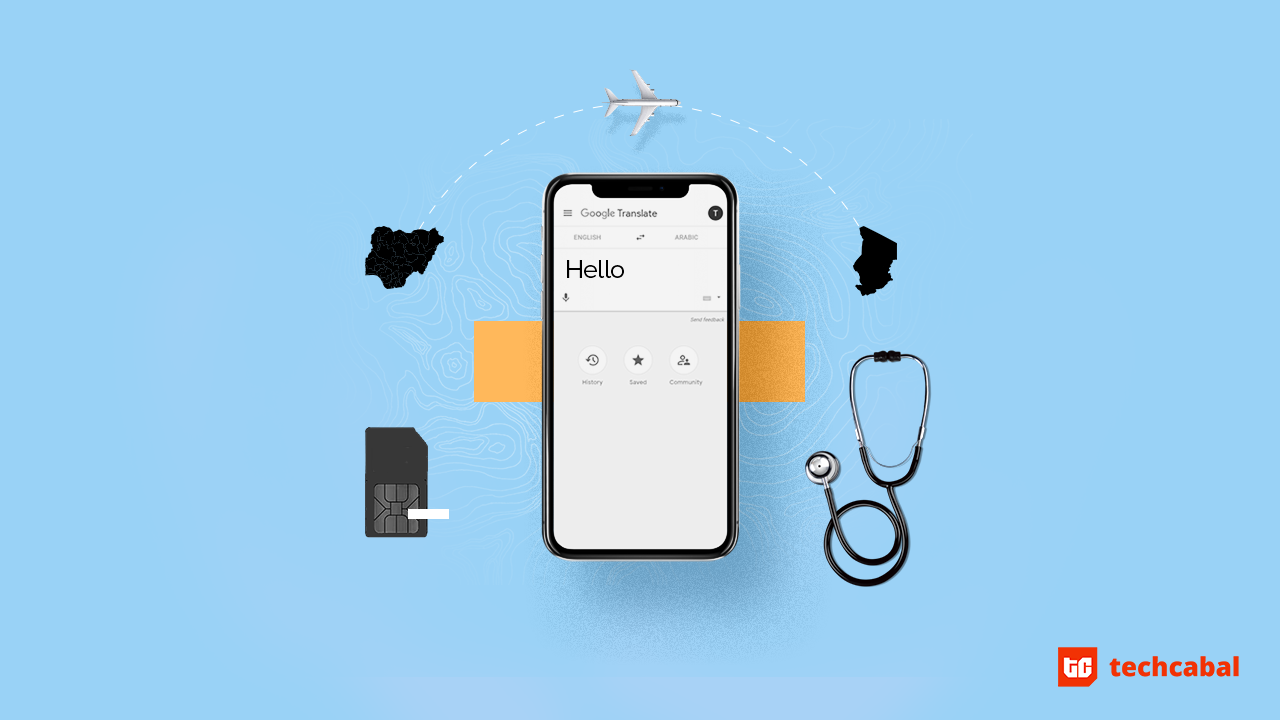The Republic of Chad is a landlocked country in North-Central Africa. To the South West, it shares a border with Nigeria at Lake Chad.
*Dolapo, a Nigerian management consultant with work in the health sector has lived and worked in Chad since October 2019. He punctuates his work with monthly visits to Nigeria. But, right now, because of the COVID-19 outbreak, he’s back in Nigeria.
Dolapo tells me: “I returned to Nigeria because of the COVID-19 concerns because there’s still the problem of the language barrier. If I get sick or get infected, it will be difficult to explain and go to the hospital, so I had to come home.”
Despite this, he still supports Chad’s COVID-19 response remotely. Chad has reported 52 confirmed cases of coronavirus and two deaths.
“There are policy documents that have been developed by the country, there is a contingency plan, the airport is shut down. In fact, Chad locked down their airport a week or two before Nigeria.”
What is Chad’s airport like at the best of times? Is it small and simple like Cote D’Ivoire’s or is it the picture of efficiency like Tunde found in China?
N’Djamena International Airport, Chad’s only international airport seems to sit somewhere in the middle.
“I travel from Nnamdi Azikiwe airport, and in terms of facilities, N’Djamena airport is pretty basic. When you land, the regular bus picks you up and takes you through a customs check. There’s very little automation aside from the data capture system.”
Despite the easy routine of the customs check, Dolapo says his first entry into the country was frustrating. The source of frustration? language.
Chad’s official languages are Arabic and French, and Dolapo, a Nigeria who speaks only English language was lost at sea.
“I arrived in Chad in the evening, and there were no interpreters around. The customs guy did not understand what I was saying, I did not understand what he was saying. I had no internet, there was no WiFi I could connect to within the airport to use Google translate, it was a huge mess.”
In the end, Dolapo and the customs officials grew frustrated. They ended a back and forth they both didn’t understand and he was let through customs.
Dolapo’s verdict of the N’Djamena International Airport: Pretty basic: Not very techy except for the conveyor belt and the data capture system. Chad also has a national carrier.
When you arrive in a new country, one of the first things you want to do is buy a new SIM card and let everyone know you’ve arrived in one piece. But in a country you’re new to, how do you decide on a mobile service?
“I asked people that I was going to be working with about the local networks. In Chad, there are only two networks. You have Tigo and Airtel.”
There is an interesting dynamic when you want to choose a network provider in Chad. While both network providers have a strong presence in the capital, N’Djamena, they share coverage across the rest of the country.
“So you find out that in the northern parts, the influence of Tigo is a lot, while Airtel has a lot more to the south and west of Chad. It’s more like splitting the country into two for coverage.”
It’s also important to know that calls across both networks are expensive.
“You can buy call bundles. You can buy a thousand minute talk time, and you can buy two thousand talk-time.
But the bundles are only for calls on the same network. For example, from Tigo to Tigo. These bundles are a luxury for people.”
Dolapo’s advice: If you live and work in the capital, buy Tigo and Airtel SIM cards. If you’re anywhere outside the capital, you buy the mobile network that has coverage where you are.
Our conversation moves to what it is like to visit Chad for the first time. What’s the capital city like and did Dolapo have time to visit areas outside of the capital?
“The capital is not too shabby, and I say that because there is a lot of foreigner presence. The Arabs, the folks from France and people from Francophone Africa are all scattered around.”
It means that N’Djamena has all the trappings of an Africa city that wants to appeal to expats. High-rise buildings, casinos, pubs, but no cinemas. But the city is also divided into two parts.
“Within N’Djamena there’s a place where Muslims live, where it’s a lot more austere, a lot more put together and no bars around. There are a lot more austere conditions to the North, and strict living. While to the south, people are a lot more liberal like Lagos.”
“There are places like Kabbalah, where people from the south of Chad and western parts come from. Kabbalah is like a mix.”
Away from the capital, Dolapo also visited some other regions in Chad.
“The other regions I have visited are actually almost rural. The interstate roads are desert sand, you are travelling in the desert for six to five hours. The streets are sand roads, there’s no development whatsoever.”
Dolapo’s thoughts on N’Djamena: the expats live the life and have all these amenities in one place. But the locals themselves don’t have access to these things, and still live in suburbs.”
The divide extends to transportation. There are no ride-hailing or motorcycle-hailing services in Chad. Instead, there’s a public transportation system that uses buses and taxi cabs you find at the airports.
“Within the city, there’s no structured taxi system. I hire a vehicle in Chad from a leasing company. The vehicle comes with a driver and I pay daily for the car and I also pay for fuel.”
The conversation about payments in Chad is interesting because, despite being reliant on cash, mobile money is also functional.
“On my project, I use mobile money to pay health workers. Both network providers have their own service, and they are pretty popular within the country.”
One of the things money can buy is data. How much data can you buy with $5?
“10GB Tigo data plan , costs about fifteen thousand CFA. That’s around twenty-three dollars. So if I’m spending twenty-three dollars, that’s a one-month plan.
When we do the maths, $2.3 dollars will buy us 1gb, because the exchange rate is 635 CFA to 1 dollar. It means $5 will only get you about 2gb of data.
My verdict: Pretty expensive
Now that we have data, what are Dolapo’s top used apps when he’s in Chad?
Google Translate comes first, Dip, Document translators and Whatsapp, because “calls are pretty expensive in Chad.”
In Nigeria, he uses Google maps, Odoo’s Enterprise resource software and whatsapp.
In the end, on a scale of 1-10, Dolapo rates his tech experience in Chad a 2 because “There’s not a lot of tech use as i would have expected on my project.”
If you want to share your “abroad” tech experience with TechCabal, send me an email: muyiwa@bigcabal.com
*Name changed to protect identity



















